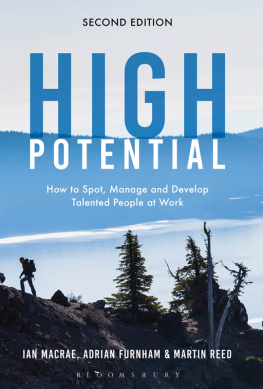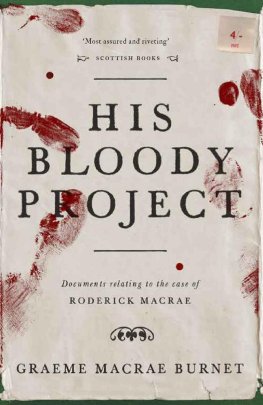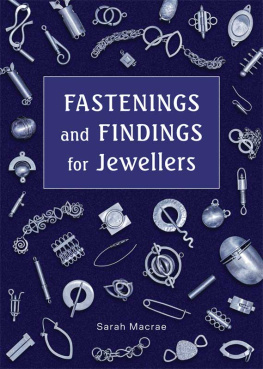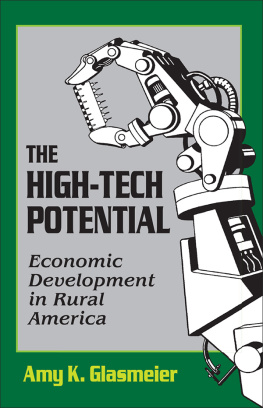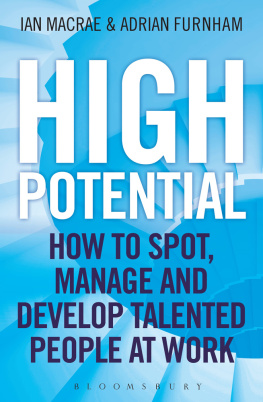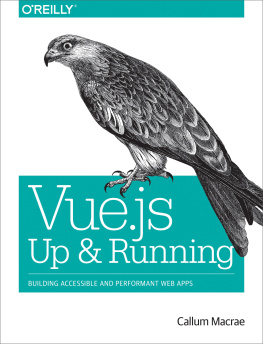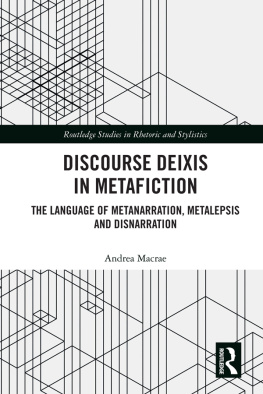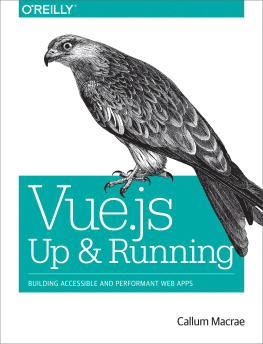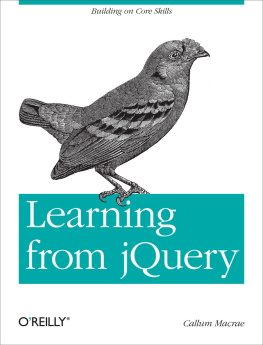Ian MacRae - High Potential
Here you can read online Ian MacRae - High Potential full text of the book (entire story) in english for free. Download pdf and epub, get meaning, cover and reviews about this ebook. publisher: Bloomsbury Publishing, genre: Politics. Description of the work, (preface) as well as reviews are available. Best literature library LitArk.com created for fans of good reading and offers a wide selection of genres:
Romance novel
Science fiction
Adventure
Detective
Science
History
Home and family
Prose
Art
Politics
Computer
Non-fiction
Religion
Business
Children
Humor
Choose a favorite category and find really read worthwhile books. Enjoy immersion in the world of imagination, feel the emotions of the characters or learn something new for yourself, make an fascinating discovery.
- Book:High Potential
- Author:
- Publisher:Bloomsbury Publishing
- Genre:
- Rating:4 / 5
- Favourites:Add to favourites
- Your mark:
- 80
- 1
- 2
- 3
- 4
- 5
High Potential: summary, description and annotation
We offer to read an annotation, description, summary or preface (depends on what the author of the book "High Potential" wrote himself). If you haven't found the necessary information about the book — write in the comments, we will try to find it.
High Potential — read online for free the complete book (whole text) full work
Below is the text of the book, divided by pages. System saving the place of the last page read, allows you to conveniently read the book "High Potential" online for free, without having to search again every time where you left off. Put a bookmark, and you can go to the page where you finished reading at any time.
Font size:
Interval:
Bookmark:
HIGH POTENTIAL
HIGH POTENTIAL
How to Spot, Manage and Develop
Talented People at Work
2nd edition
BY
IAN MACRAE, ADRIAN FURNHAM
AND MARTIN REED
Bloomsbury Business
An imprint of Bloomsbury Publishing Plc

For Neil MacRae:
Potential realized and cut short
and
Benedict Furnham:
Great potential realized
Figures
Tables
The intention of this book in the first edition was to be interesting, thought-provoking, and to approach some of the issues that seem to be controversial in public discourse, address the facts that would benefit people in the workplace, and to discuss topics where there is no scientific controversy on the facts. The first sentence of the preface to the first edition was: There is, almost certainly, going to be something in this book you object to. The surprising reaction was that there was nothing objectionable, other than slight overuse of commas.
There seems to be a genuine groundswell in the realms of HR, management, leadership and workplaces in general that involves people making better decisions based on good judgement. It is the purpose of this book to bring the science of psychology, of business and of people to life. The goal of making workplaces better, more profitable, more productive and healthier goes hand in hand. The science firmly backs this up, and there are so many opportunities to bring it to the workplace.
The topic of what is desirable at work remains an interesting one. There are certain behaviours, activities and results that are desirable in particular times, societies and environments and not in others. There are certain things that make people successful at work that may cause difficulties in other areas of life. Similarly, there can be qualities that make someone an excellent friend, but a terrible boss. A brilliant accountant but a terrible counsellor. A sublime performer but a lacking conversationalist. The problem of potential is always a question of what kind of potential do you mean? Many people believe that a leader of a massive company or country is the pinnacle of achievement: Success is power.
Others believe that a very different type of achievement is the pinnacle of human achievement. Some confidently announce that art, science, military victory, spiritual awareness, athletic performance, personal power, wealth, happiness, conformity or even extreme suffering (i.e. le douleur exquise, White House Press Secretary) is the pinnacle of achievement. The more specific you get about particular types of achievement, the more discriminating people can be. Tchaikovsky once said of Brahms, what a giftless bastard. Others will disagree.
Our purpose in this book is not to say what is valuable, socially desirable, or to say potential is a specific behaviour or accomplishment. That would be an error. Instead, we see potential as a probability or likelihood to behave in a particular way. That means high potential at work can be seen as a high probability to be successful at a particular type of work, and will likely lead to exceptional performance in a particular area (but not always). Potential is a bet, but not a guarantee. But it is based on an extremely important set of traits and characteristics. The probability of performance can also mean people with low potential in a certain area may still perform well in that area, under exceptional circumstances but exceptions are by no means the rule.
Make decisions based on potential, on probabilities, but leave room for people to surprise you give people the benefit of the doubt, and the occasional opportunity to prove you wrong. Not everyone will surprise you, but its worth waiting for the person who will. Uniformed decisions in favour of, or against, people lead to frequent errors. As we discuss in this book, there are very many factors that contribute to potential. In many cases, being average is strength. Yet, as positions get more demanding, responsibilities are greater, consequences of failure become more dire, scrutiny becomes more important. Exceptionality is also abnormality with all the implied strengths and weaknesses. The more demanding the position, the more particular the requirements.
Also, remember that the focus of this book is on potential at work. The characteristics one would use to evaluate an employee or boss are not the same one should use to judge the personal relationship with a partner, lover, friend, parent or child. We will describe the components of potential at work, while the question remains for you, dear reader, to consider the potential to do what.
That is, in fact, the purpose of this book: to provide a framework for describing potential at work along with some of the key attributes. These attributes are based on the best available scientific evidence and applied research. This is a framework, an efficient way of describing and thinking about potential, within a particular structure.
That being said, only one point remains before moving from the preface into the very real face of this book and that is to recognize the contributions. Just as potential does not exist without someone defining potential to do what, and many others developing potential. Likewise, this book would not exist without many contributions. Heather Stewart, Lloyd Craig, Zohra Ihsan, Zac Olson, Ken Whittall, Paul Rein, Alison Lui, Matthew Griffiths, Jessica Weaving, Risn OConnor, Stephen Cuppello, Cherie Mandoli Jayson Darby, Kamilla Bahbahani, Cherie Mandoli, Brendan MacRae, Rebecca Milner, Sonya Bendriem Luke Treglown, Toni-Ann Murphy and John Taylor all contributed directly (whether knowingly or unknowingly) to the content in these pages.
Things are always at their best in their beginnings.
BLAISE PASCAL, LETTRES PROVINCIALES
Life being very short, and the quiet hours of it few, we ought to waste none of them in reading valueless books.
JOHN RUSKIN, SESAME AND LILIES
Introduction
Every organization needs to hire able, motivated and talented staff with potential. At the same time, most organizations and anyone who has worked knows that promoting talent does not always turn into high potential. Some intelligent people turn out to be lazy. Some highly successful people turn out to be narcissistic, manipulative and, ultimately, destructive to their team and can potentially turn self-destructive. Others are hard workers who can never seem to apply themselves to the correct tasks. Talent, ability or personality history do not always turn into future potential.
Imagine a technician that is promoted to a leadership position, a salesperson who is assigned to work in the HR department. What about a scientist who becomes an activist, a politician who becomes a newspaper editor or a businessperson who becomes a politician. They may succeed, but one cannot assume success in a previous position will lead to success in a fundamentally ), is extraordinarily common across organizations and workplaces, and stems from a misunderstanding of potential.
So the question is, how do we predict high potential? What can be done to identify potential top performers and sift out the potentially poor performers or likely derailers? This book answers that question, and provides a detailed guide to the tools, resources and knowledge that can be used to spot, manage and develop potentially high performers and make every effort to sift out those who will fail, derail or be destructive.
High potential
High potential is the ability to perform exceptionally well (at work, for a reasonable amount of time) for their own benefit and that of the organization
Next pageFont size:
Interval:
Bookmark:
Similar books «High Potential»
Look at similar books to High Potential. We have selected literature similar in name and meaning in the hope of providing readers with more options to find new, interesting, not yet read works.
Discussion, reviews of the book High Potential and just readers' own opinions. Leave your comments, write what you think about the work, its meaning or the main characters. Specify what exactly you liked and what you didn't like, and why you think so.

